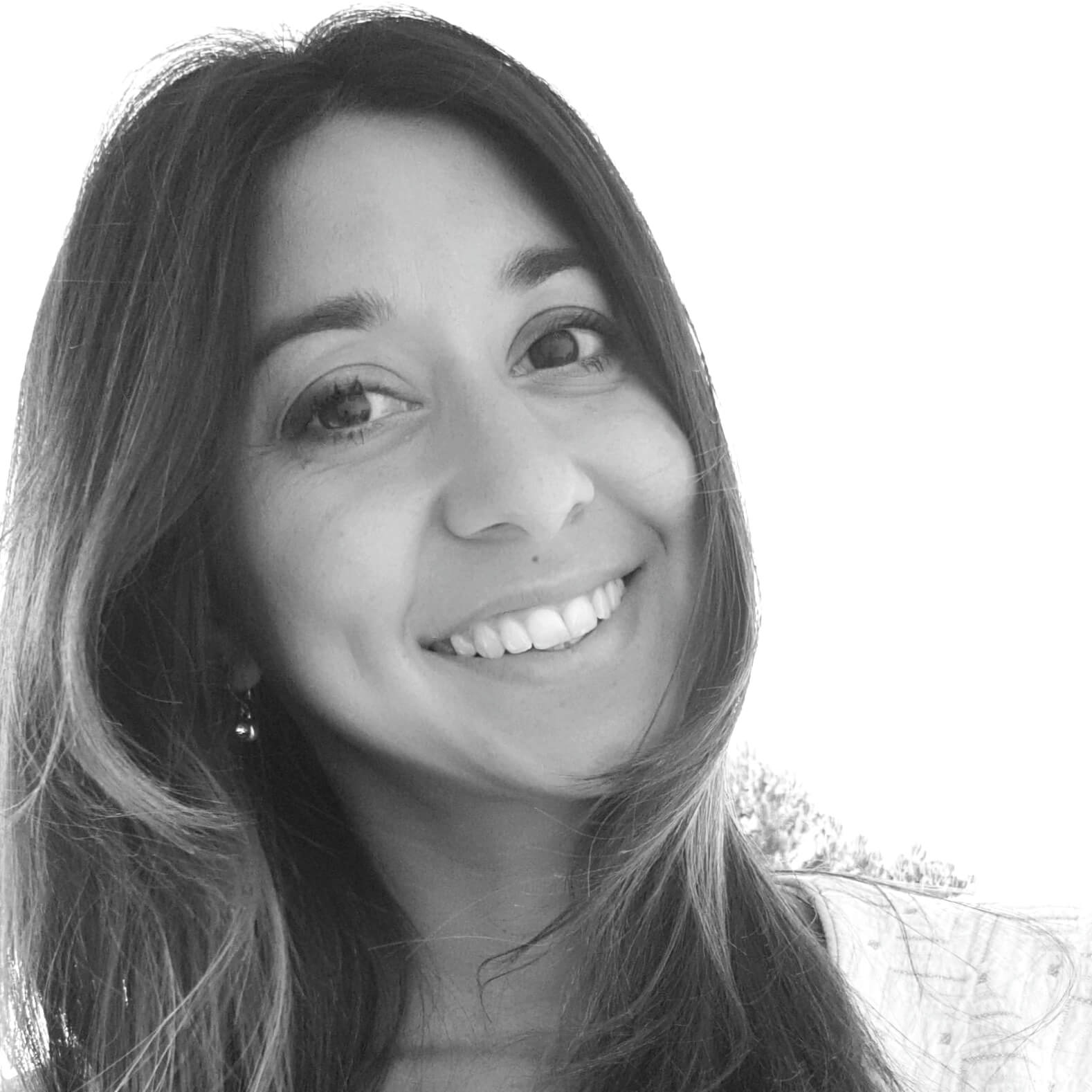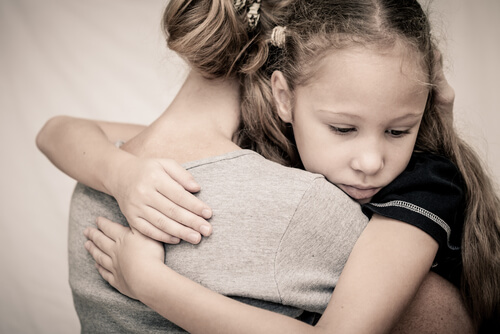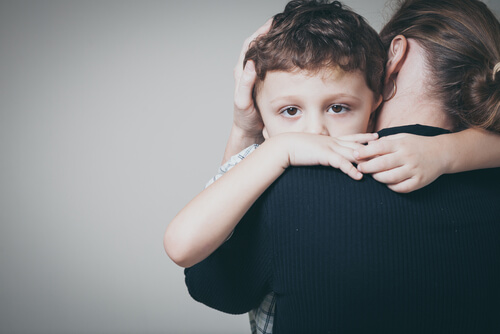How Children Learn to Lie


Written and verified by psychologist and journalist Sara Clemente
Children aren’t born with an innate moral code. It’s something that’s taught to them by their family, school, and the environment. As they get older, adults serve as role models for them as to what they should and shouldn’t do. The concept of lying is something that they acquire as they grow up. Therefore, just as they learn the right way to behave, they also learn to lie.
How children learn to lie
From birth to three years
Children from birth to three years don’t understand the concept of lying. Their only concern is to cover their basic physiological and psychological needs. For these, they depend on adults.
At this stage, as adults, we’re not yet role models for them, so telling them a small lie can always be remedied.
Between three and seven years
Children of this age still don’t know for sure the difference between fantasy and reality. It’s common for them to create imaginary worlds while playing, which they sometimes confuse with the real world. Adults often find this amusing and contribute to the fantasy, giving a place for the imaginary friend or certain fairytale characters.
In most cases, adults don’t want to end this childish creativity. Nevertheless, this attempt to prolong the fantasy can sometimes backfire and confuse the child. Therefore, it’s important to help them distinguish between fiction and reality. This, in turn, will make it easier for them to differentiate between what’s true and false.

Between five and ten years
Between five and ten years, children develop the crucial cognitive skill that allows them to put themselves in another’s shoes. Indeed, according to the theory of mind, from the age of six, children abandon the idea that others see and think like them. In fact, they start to be able to surmise what’s going on in another’s mind. Consequently, they’re also learning to lie.
If the child has been raised at home or at school with moral standards and values that emphasize the importance of telling the truth, they’ll do everything possible to comply with them outside the home environment. This is largely due to their eagerness to feel older and gain the approval of adults.
As they learn the difference between truth and lies, they become increasingly capable of controlling their behavior and that of others. Thus, they’ll also be able to discover and recognize lies told by other people or their peers.
From the age of ten
From this age onwards, children know when they’re telling the truth or blatantly lying. As a matter of fact, between the ages of ten and eleven, the child is able to state something totally different from what really happened.
Reasons for children to lie
Older children, when lying, are guided by these factors:
Fear
Sometimes, children lie due to the fear of their parents’ responses. They’re worried about the consequences of telling the truth and make the decision to lie, to avoid punishment.
For something they don’t like doing
The area in which children lie the most concerns performing tasks that they don’t like doing. In this respect, they try to deceive their parents, stating that they’ve carried out these tasks when they haven’t. This may be due to the fact that they don’t like a particular subject and, to please their parents, they lie.

To fit in with their peers
This is usually done by shy or socially withdrawn children. They begin to lie to gain the approval of their peers.
Lack of understanding
Some children lie because they don’t know when it’s socially appropriate to lie and when it isn’t. This is due to a lack of education.
Over strict boundaries
Particularly during adolescence, parents often establish such an iron discipline that it doesn’t allow young people to acquire independence and autonomy. This creates a situation in which children feel trapped, anxious, and powerless. One of the consequences of this can be lying.
Modeling
Some children copy the habits they’ve observed in their parents. Indeed, their parents are their models at all levels. Hence, if their parents lie, they’ll lie.
Children learn to lie throughout their development. Therefore, it’s the job of adults to try and make them learn the difference between what’s right and wrong.
Children aren’t born with an innate moral code. It’s something that’s taught to them by their family, school, and the environment. As they get older, adults serve as role models for them as to what they should and shouldn’t do. The concept of lying is something that they acquire as they grow up. Therefore, just as they learn the right way to behave, they also learn to lie.
How children learn to lie
From birth to three years
Children from birth to three years don’t understand the concept of lying. Their only concern is to cover their basic physiological and psychological needs. For these, they depend on adults.
At this stage, as adults, we’re not yet role models for them, so telling them a small lie can always be remedied.
Between three and seven years
Children of this age still don’t know for sure the difference between fantasy and reality. It’s common for them to create imaginary worlds while playing, which they sometimes confuse with the real world. Adults often find this amusing and contribute to the fantasy, giving a place for the imaginary friend or certain fairytale characters.
In most cases, adults don’t want to end this childish creativity. Nevertheless, this attempt to prolong the fantasy can sometimes backfire and confuse the child. Therefore, it’s important to help them distinguish between fiction and reality. This, in turn, will make it easier for them to differentiate between what’s true and false.

Between five and ten years
Between five and ten years, children develop the crucial cognitive skill that allows them to put themselves in another’s shoes. Indeed, according to the theory of mind, from the age of six, children abandon the idea that others see and think like them. In fact, they start to be able to surmise what’s going on in another’s mind. Consequently, they’re also learning to lie.
If the child has been raised at home or at school with moral standards and values that emphasize the importance of telling the truth, they’ll do everything possible to comply with them outside the home environment. This is largely due to their eagerness to feel older and gain the approval of adults.
As they learn the difference between truth and lies, they become increasingly capable of controlling their behavior and that of others. Thus, they’ll also be able to discover and recognize lies told by other people or their peers.
From the age of ten
From this age onwards, children know when they’re telling the truth or blatantly lying. As a matter of fact, between the ages of ten and eleven, the child is able to state something totally different from what really happened.
Reasons for children to lie
Older children, when lying, are guided by these factors:
Fear
Sometimes, children lie due to the fear of their parents’ responses. They’re worried about the consequences of telling the truth and make the decision to lie, to avoid punishment.
For something they don’t like doing
The area in which children lie the most concerns performing tasks that they don’t like doing. In this respect, they try to deceive their parents, stating that they’ve carried out these tasks when they haven’t. This may be due to the fact that they don’t like a particular subject and, to please their parents, they lie.

To fit in with their peers
This is usually done by shy or socially withdrawn children. They begin to lie to gain the approval of their peers.
Lack of understanding
Some children lie because they don’t know when it’s socially appropriate to lie and when it isn’t. This is due to a lack of education.
Over strict boundaries
Particularly during adolescence, parents often establish such an iron discipline that it doesn’t allow young people to acquire independence and autonomy. This creates a situation in which children feel trapped, anxious, and powerless. One of the consequences of this can be lying.
Modeling
Some children copy the habits they’ve observed in their parents. Indeed, their parents are their models at all levels. Hence, if their parents lie, they’ll lie.
Children learn to lie throughout their development. Therefore, it’s the job of adults to try and make them learn the difference between what’s right and wrong.
This text is provided for informational purposes only and does not replace consultation with a professional. If in doubt, consult your specialist.







